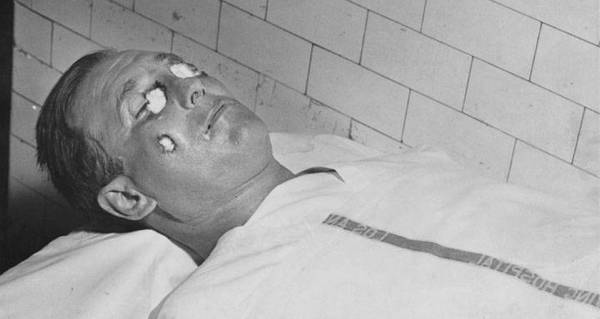Amanda Riley’s story is a complex one that Raises Questions About Deception, Mental Health, and the consequences of our actions.
Once known as “Scamanda” online, she garnered widespread sympathy for her purported battle with cancer. She used this fabricated illness to Raise Over $100,000 from generous donors who believed they were helping a woman in need. However, Riley’s carefully constructed facade eventually crumbled when the truth came to light. Her actions not only betrayed the trust of those who supported her but also diverted resources away from Genuine Cancer Patients.
Now serving a five-Year Prison Sentence, where is Scamanda now? The answer is behind bars, facing the consequences of her elaborate scheme. But her story doesn’T End There. Even in prison, Riley continues to claim illness, leading to accusations of manipulating medical tests and further raising questions about Her Motivations.
Amanda Riley’s Fraudulent Cancer Diagnosis
Amanda Riley’s online persona painted a picture of a young woman bravely battling cancer. She shared heartbreaking stories about her diagnosis, treatments, and the toll it took on Her Family. Riley used social media platforms to connect with thousands of followers who offered their support and donated generously to help cover her medical expenses.
Her story resonated deeply with many people, who were moved by her apparent courage and vulnerability. However, this carefully crafted narrative was entirely fabricated. Riley had never been diagnosed with cancer. She invented her illness, using it as a tool to manipulate others into giving her money. Her online fundraising campaigns became increasingly elaborate, with detailed accounts of her supposed struggles and pleas for financial assistance.
The impact of Riley’s deception was significant. Not only did she steal from those who believed in her story, but she also diverted resources away from genuine cancer patients who were relying on donations to fund their treatments. Her actions highlighted the dangers of online fundraising without proper verification and the potential for individuals to exploit people’s empathy for personal gain.
The Impact on Donors and Victims
The revelation of Amanda Riley’s fraudulent cancer diagnosis sent shockwaves through the online community and left many donors feeling betrayed and heartbroken. Those who had generously contributed to Her Cause, believing they were helping a sick woman, were now faced with the painful realization that they had been deceived.
Some donors expressed feelings of anger and frustration, while others struggled with guilt for having fallen prey to Riley’s manipulation. The emotional toll on these individuals was significant, as they grappled with the loss of trust and the sense that Their Compassion Had Been Exploited. Furthermore, the funds raised by Riley were meant to support her supposed medical treatment. Those resources could have gone to genuine cancer patients who desperately needed financial assistance for their healthcare expenses.
The impact extended beyond just financial losses; it also created a climate of Distrust Within Online Fundraising Communities. The case served as a stark reminder of the importance of due diligence and critical thinking when engaging with online pleas for help.
 Famous Gymnasts: Inspiring Legends of Gymnastics
Famous Gymnasts: Inspiring Legends of GymnasticsFactitious Disorder: A Psychological Explanation
While Amanda Riley’s actions were undeniably harmful, understanding her motivations requires delving into the complexities of factitious disorder. This mental health condition, Often Referred To As “Munchausen syndrome,” involves individuals intentionally feigning or exaggerating symptoms of illness for attention and sympathy.
Unlike malingering, which is motivated by external gain (like avoiding work or receiving financial benefits), factitious disorder stems from a deep-seated need for validation and care. Individuals with this condition often have a detailed understanding of medical terminology and can convincingly portray their fabricated ailments. Their deception can be elaborate and persistent, Leading To Unnecessary Medical Tests, procedures, and hospitalizations.
Experts believe that Riley’s case may be indicative of factitious disorder, as she continued to claim illness Even While Incarcerated, despite facing legal consequences for her Previous Actions. This suggests a pattern of behavior driven by a psychological need rather than a desire for financial gain.
Life Behind Bars for Amanda Riley
Life behind bars is a stark contrast to the online persona Amanda Riley cultivated. While she once enjoyed the attention and sympathy of thousands of followers, her current reality is one of confinement and isolation. She is serving her five-year prison sentence in a correctional facility, where she is subject to strict rules and regulations.
Riley’s days are likely structured around Routine Tasks, meals, and limited opportunities for social interaction. The freedom she once enjoyed online has been replaced with the confines of a cell and the constant supervision of guards. Her husband and sons, who reside in Texas, are allowed to visit her periodically, providing a brief glimpse of the Life She Left Behind. However, these visits likely serve as a painful reminder of the distance between her past and present reality.
Even within the prison walls, Riley continues to claim illness, raising questions about the nature of her condition and whether it is truly rooted in medical need or Further Manipulation. Her anticipated release date is December 4, 2025, marking a potential turning point in Her Life. But the lasting consequences of her actions will undoubtedly continue to shape Her Future.
Seeking Redemption or Continued Deception?
As Amanda Riley’s Release Date Approaches, the question arises: will she seek redemption for her past actions or continue down a path of deception? Her time in prison has undoubtedly offered her opportunities for reflection and self-assessment. Perhaps this period of confinement has allowed her to confront the consequences of her choices and genuinely remorse for the harm she caused.
It’s possible that Riley, Upon Release, will strive to rebuild her life with honesty and integrity. She may seek to make amends with those she wronged by offering sincere apologies and working towards repairing the damage she inflicted. However, considering her history of fabricating illnesses even within the prison system, it’s equally plausible that she might revert to familiar patterns of deception.
Only time will tell whether Riley chooses to embrace a path of accountability or continue perpetuating the cycle of manipulation that has defined her past. The world watches with bated breath, awaiting the next chapter in this complex and unsettling story.










